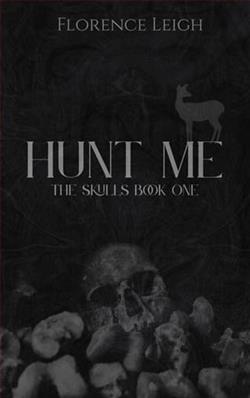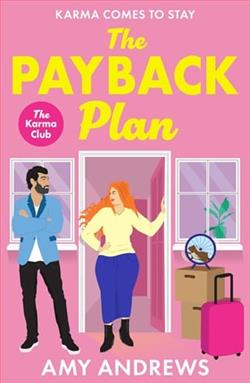Page 37 of Your Every Wish
Mom went without a whole lot just to make sure I had new school clothes, birthday parties, dance lessons, summer camp, and all the other expenses growing children cost. It’s not as if Willy helped financially. I was lucky if he remembered to send me a Christmas card during the holidays.
When he left, he slammed the door firmly behind him and never looked back. I was stunned to learn that he named me in his will, stunned that he even remembered me at all.
By the time I was in high school, I barely thought about him. Sure, there were times when I wondered what it would be like to have a dad and do all the things that a girl does with her father, like Giants games, fishing trips, daddy-daughter dances (not really a thing in San Francisco) and building tree-houses together. But I did many of those activities with Mom. The fact is that growing up in a single-parent home isn’t all that unusual.
Mostly my feelings toward Willy Keil were resentment. Not for deserting me, but for deserting Mom. To this day, I’m not sure she ever really got over it until a few years ago when she met Sam, the sweetest, most reliable man on the planet. Together, they’ve built a wonderful life together and Mom finally has a lovely home she can call her own.
With Willy it was one of those whirlwind romances. She was just eighteen, barely out of high school when Willy swept her off her feet.
He’d moved to San Francisco from the Midwest (Illinois, I think), and got a job working at a car dealership, hawking new Mercedes-Benzes. According to Mom, he could sell encyclopedias to Sergey Brin. He was that gifted. When he would sell a car, he’d send out twenty promotional fliers to the customer’s neighbors. When that didn’t work, he made cold calls in the 415, 510, 650, 408, and 707 area codes, hyping a sale or special promotion. Within two years, he was selling ten cars a month. Not long after, Willy joined a new dealership that specialized in exotic sports cars. Soon, he was making close to $400,000 a year in commissions, more money than he’d ever seen in his life.
He grew up in a rural town, dirt-floor poor. When he was ten, his father ran off with a young waitress who worked at the local diner, leaving his mother to oversee their twenty-acre farm. She died two years later from ovarian cancer, leaving him and his brother to be raised by his grandmother in Chicago. His grandmother worked as a secretary in a Catholic church by day and cleaned offices at night to put food on the table and a roof over their heads.
To help out, Willy went door to door, selling magazine subscriptions. But what Willy was best at was gambling. At the age of fourteen he used some of his subscription money to bet on the New York Yankees to beat the Los Angeles Dodgers in the 1977 World Series. The Yanks defeated the Dodgers four games to two and took home their first series championship since 1962.
Willy never forgot it.
Two years after he and Mom were married, the year they had me, he started his own business, Keil International Auto Sales, a wildly successful wholesale car distributor, securing hard-to-get vehicles for dealerships throughout the Pacific Northwest.
But he never stopped dabbling in sports betting, his one true love. He was so good at it that he set up a clandestine bookmaking business, catering to some of his wealthiest clients. Mom hated it, fearing that Willy would be arrested, and they would lose everything.
He was and he did, but that would come later, long after he and Mom had broken up.
No, Willy assuaged Mom’s fears by secretly selling Keil International Auto Sales, moving to Las Vegas, where gambling is legal, and having an affair with a showgirl—Kennedy’s mother.
From there, things get hazy. What I know is that he became a professional gambler and built a prosperous bookmaking business that catered to celebrities and sports stars. Not long before his prison stint, his company joined forces with Sports Analytics, a network of sports bettors, handicappers, and investors who used a computer-analysis approach to betting. After that he was inducted into the Sports Betting Hall of Fame.
And then a few years ago, he was popped for insider trading. One of his clients, a board member of Spordell, an athletic-wear manufacturer, tipped him off to a pending merger with Nike, a deal he made millions on. Willy was fined all the money, and then some, and sentenced to ten years in federal prison.
It took a lot of digging on my part to gather the information on my illustrious father because the case didn’t receive much publicity in the press. White-collar crime, unless it’s of the scope of Enron or Bernie Madoff, rarely does.
Kennedy is back, an exasperated expression on her face. “He says he already cleaned out Willy’s safe-deposit box and the contents are part of the four thousand dollars we received. ”
It takes everything I have not to tell her I told her so.
She holds up the gold key. “He says he found this key in the box and threw it into one of the envelopes and has no idea what its significance is. It is not the key to the box he already opened. That one was in Bank of the West in downtown San Francisco and has since been closed. For all he knows this key is a memento of some sort. A ‘good luck charm.’ ” She makes quotes in the air. “But I’m not buying it. This key goes to something and when we find it, it’ll be filled with money, I just know it.”
“What if it isn’t?”
“What if it is?” she challenges.
“Look, I didn’t want to tell you this before because you were all riled up about the key being in my envelope and not yours, but I’m pretty sure Willy died penniless. I’m pretty sure he died penniless because his last days on earth were spent in a federal penitentiary for insider trading.”
“What are you talking about? Mr. Townsend said he died in Santa Barbara. Isn’t that where Oprah Winfrey and Prince Harry and Meghan Markle live?”
“He died in a federal correction institution in Lompoc, California. It’s an hour away from Santa Barbara. And the only people who live there are convicted felons.”
“How do you know this? And how do I know you’re not just telling me this so you can find the money yourself?” She collapses on the couch and puts her feet up on the coffee table.
“I know it because after you and I met at Mr. Townsend’s office, I went home and did a little research. Something about his story about Willy dying with friends didn’t sound right to me. Townsend made the whole thing up to spare us the sadness of it. But when I called him to tell him I knew, he confirmed it. Every last bit. Hang on a sec, and I’ll show you.” I search Google for theSan Diego Union-Tribunearticle with the story and hand my phone to Kennedy.
“You see?” I say after giving her enough time to read the entire story. “I didn’t make it up.”
“Oh my God, I can’t believe I didn’t know this. Do you think he really did it?”
“Yes! Of course he did it.”
“But why? Why would he risk everything?”















